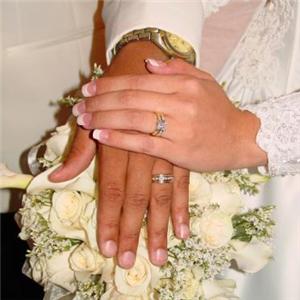Temporary marriage (no, not that kind) has been all over the news since some Mexico City lawmakers started pushing for marriage contracts that expire after two years. I don’t know enough about Mexico City politics to guess whether this proposal has a chance of passing or whether it’s a vanity bill, but that doesn’t seem to have stopped the blogosphere from bewailing it as the latest sign of the marriage apocalypse.
Instead of defending marriage, religious leaders should work on defining it. The anti-gay marriage coalition is trying to make the broad, secular definition of marriage fit the strictures and shibboleths of their own faith. Some anti-gay marriage activism is rooted in altruism – they genuinely want people to be part of the ‘highest’ form of marriage, just like they want heathens like me to convert, but most of it seems to be fueled by fear that gay marriage will profoundly alter marriage for everyone.
The more marriage is treated as a unified cultural institution, the more likely that scenario becomes. People have radically different expectations of marriage, but we have no clear way of talking about them and everyone ends up angry that the other side is unfairly appropriating the word. Most of the time, people on either side of the argument can’t even concede that the other side is coherent given its philosophical or metaphysical premises, and the debate gets derailed fast. What we need is a little clarifying balkanization.
Making a clean distinction between certain conceptions of marriage makes every subculture less of a direct threat to each other. That’s not to say they won’t all remain in a high-stakes competition, but they’ll be able to make a clearer pitch for their brand without worrying as much about other frameworks diluting their tradition. They can focus on making a positive case for their take on marriage, instead of playing frantic linguistic defense.
The impetus to fracture marriage can come from church or state. In France, civil unions are defining a new relationship niche that some see as a prelude to true marriage but others see a fully satisfactory arrangement in its own right. On the other side of the church-state divide, an Australian archdiocese will no longer certify marriages for legal purposes. Couples will get their marriage licenses signed by someone in government instead of by a member of the clergy.
The legal change in France prompted a linguistic change. Instead of only talking about whether or not they’ll ‘se marrier,’ French couples might ‘se pacser’ instead. The new verb is derived from the name of the civil union, a PACS. Navigating the cultural shifts in America might be easier if we coined some retronyms of our own.
A retronym is a strange kind of neologism. Most new words describe a new concept, but retronyms are meant to distinguish an old idea from a new one that may be supplanting it. A guitar was just a guitar until new tech forced people to start clarifying if they meant an acoustic guitar.
By the end of a linguistic reshuffling, I don’t think anyone will be able to claim unadjectived marriage as their own, which, given the incongruities between modern institutions and their historical instantiations, is probably for the better. Catholics might do well to stake out ‘sacramental marriage’ which puts the emphasis back on marriage as grace, not as contract. For conservatives trying to make a secular pitch, I heartily recommend ‘covenant marriage’ (which is a tweak I endorse on its merits).
Divorce these differing ideas of marriage and let them stand and fall on their own strengths. In fifty years or so, after the dust clears, hopefully the best one(s) will be left standing.
UPDATE: I just noticed that, over in the Catholic portal, Crescat has a discussion going on the difference between weddings held in churches and those in secular locations. There’s an interesting crossover of people who aren’t religious but rent a church because ‘marriage’ is so entangled in a religious aesthetic.













